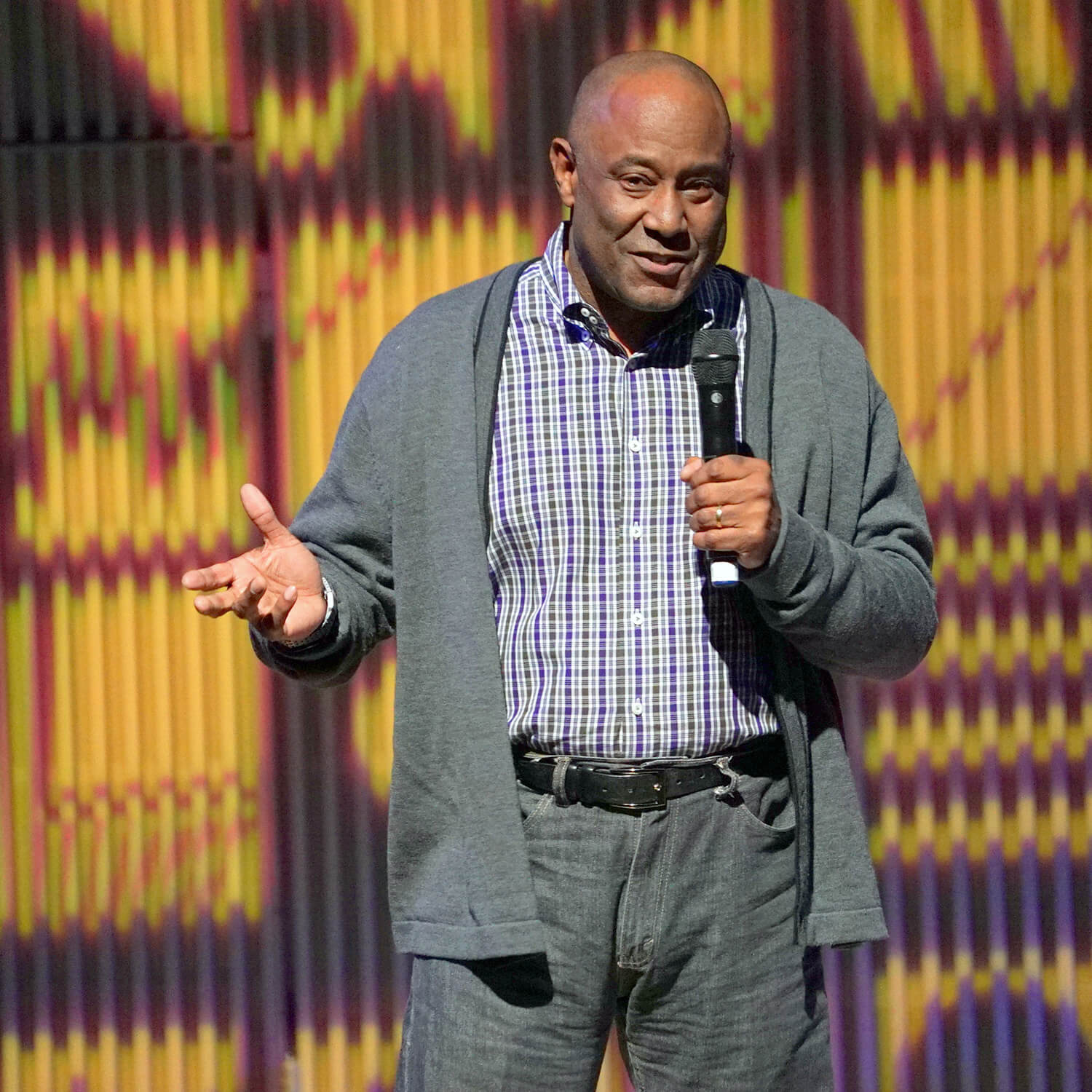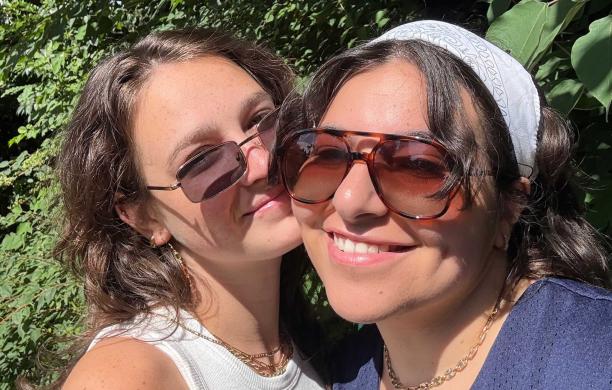Growing up in Detroit with a pianist as a father, Mount Allen III ’11G was encouraged to explore music. But while his sister, Geri Allen, became a renowned jazz pianist, composer, and educator, Mount Allen’s musical efforts fell short of his melodious ambition.
Allen would make landmark contributions to music in different ways.
Starting a Career in Music
The journey to a career in music began in an unlikely way: Allen was traveling around to present no-money-down real estate seminars.
“It was the low point of my life,” he says. “As a result of working for a company that failed to pay my wages, I experienced homelessness in association with that period. But it did show me the possibility of working in a venue as opposed to bringing things there of questionable quality.”
Allen landed a position opening and working for Modesto Centre Plaza, a multipurpose convention center in California. Seeking to transition from the convention center segment to concert venues, he volunteered with the hosting of arts activities in the area over the next seven years and learned more through professional development, funding much of it himself.
“Thankfully, I had a very supportive supervisor who allowed me to count my participation at conferences and meetings as time worked,” says Allen. “As a result, I embedded myself in the cultural arts professional community. When the New Jersey Performing Arts Center (NJPAC) was being built, I was recognized as both a venue opener and a member of the performing arts community. NJPAC approached me and asked if I would like to join their opening team.”
His experience at NJPAC paved the way to join Jazz at Lincoln Center in New York City, which he helped open in 2004 as the first performing arts center in the United States designed specifically for jazz.
As director of scheduling, Allen coordinated facility rentals in between the jazz program’s events. Witnessing performances by jazz greats such as McCoy Tyner, Terri Lyne Carrington, Esperanza Spalding, Abbey Lincoln, Branford Marsalis, Vijay Iyer, resident artistic director Wynton Marsalis, as well as his sister, Geri, was an invaluable perk of the job.
A Boost at Lehigh
Still, with only a high school diploma, Allen realized that he needed more education to advance his career. He seized his opportunity by taking a position as director of scheduling and rentals for Zoellner Arts Center, a job that offered free classes. Through the Lehigh Valley Association of Independent Colleges, he earned a bachelor’s degree with a major in organizational management at Moravian College before pursuing a master’s in educational leadership at Lehigh.
“Lehigh gave me two bangs for my buck over six years, which I think has made a huge difference in the trajectory of my career,” Allen says.
Professors George P. White and Floyd Beachum were major influences by spurring his thinking about critical theory.
“I became aware of how inequitable systems of education can be in America and the role of educational leadership in making a difference in people's lives,” Allen says. “At the interdisciplinary level, I appreciated Professor Daniel Lopresti for his openness to consider the intersection of music and high-performance computer networks such as Internet2."

Leveraging the Network
Allen developed a passion to address that inequity through the high-speed National Research and Education Network (NREN) used by Lehigh and other institutions. It typically is employed in the sciences; Allen pioneered the idea of leveraging NREN as a tool for virtual collaboration in the arts.
One highlight of exploring this technology at Lehigh, he recalls, was coordinating a real-time collaboration between a professor on campus and panelists at a symposium hosted by the Corporation for Education Network Initiatives in California (CENIC)
“It was like Zoom on steroids,” he explains.
NREN has the potential to accelerate the educational progress of marginalized communities that have received less access to resources, Allen says.
“One way to do that is through virtual collaboration,” he adds, “and music is a great medium for this … If we can have jazz performers at multiple locations play together simultaneously — which is very, very difficult to do — then it’s easy to use the network in distance learning.”
Westward and Onward
After six years at Lehigh, Allen couldn’t pass up the chance to take part in opening the new San Francisco Jazz Center (SFJAZZ). His new role was similar to the one he held at Lehigh. He was promoted to director of operations in 14 months, a position he still holds today. In December, he earned an Ed.D. from Cal State-Fresno in educational leadership focusing on the democratization of research and education networks.
He’s continued to push the limits of computer networking technology to advance educational equity. He proudly coordinated an event in which musicians at the University of California-Davis, New World Symphony in Miami, and SFJAZZ connected through NREN to perform together virtually from their separate locations. Allen has since coordinated similar distributed performances and given presentations at conferences to encourage progress.
He also founded Opening Portals to the World of Jazz, a virtual education community that includes public libraries and schools from kindergartens to universities. One component is making live jazz performances and music master classes available through NREN to children whose schools would otherwise lack access. In some concerts hosted by SFJAZZ, off-site children virtually participate in call-and-response musical numbers.
Opening Portals also provides a platform for curriculum development, virtual auditions for university jazz programs, and experimentation with NREN and related technology. Allen is working on extending the benefits to historically Black colleges and universities and Native American communities underfunded by state governments.
“There’s an opportunity for this technology to make an impact in the lived experiences of marginalized people,” he says, “and one of the easiest ways to make this transformation is through cultural experiences. Jazz and other improvisational art forms are really great vehicles for this.”


